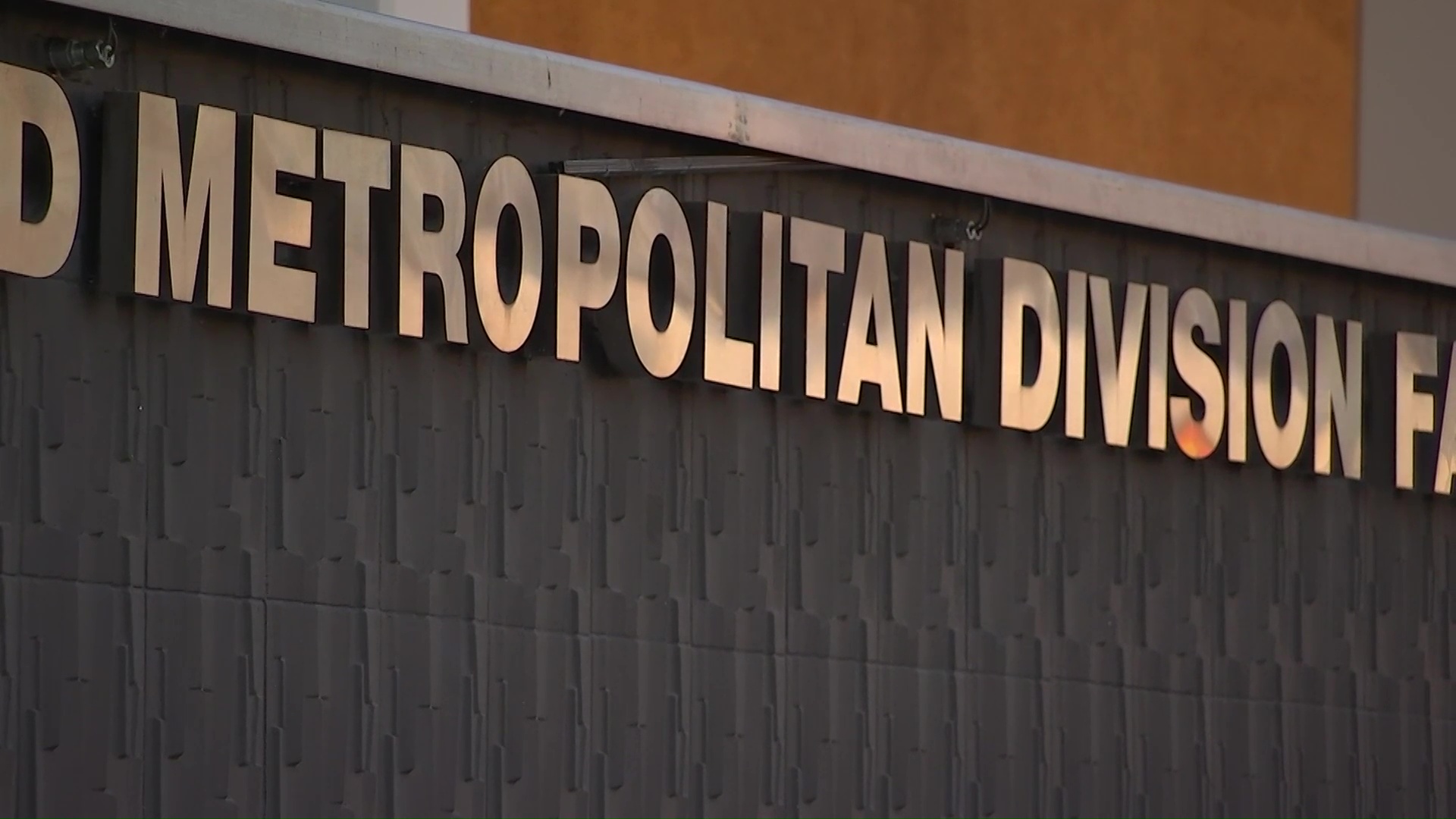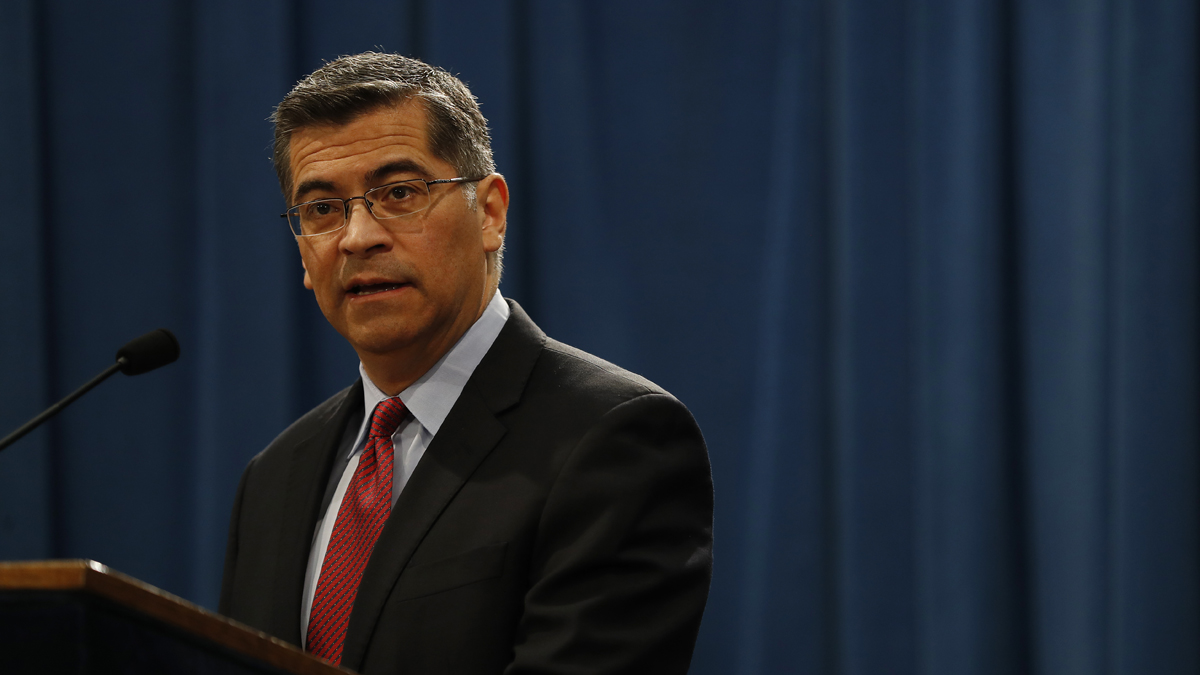An LA Superior Court Judge ruled Friday there was enough evidence to put an LAPD officer on trial on charges he falsely labeled dozens of innocent people as gang members, and whose names were later added to a statewide police database.
Judge Eleanor J. Hunter ordered officer Braxton Shaw to return to court later this month to enter new pleas to the charges of preparing false evidence and filing false police reports.
Shaw was among six officers from the LAPD’s Metropolitan Division charged in 2020 in the falsified data investigation, but charges against the five other officers were dropped or dismissed last year.
Prosecutors accused Shaw of falsifying more than three dozen interview cards, by allegedly writing that people he stopped and questioned had ‘self admitted’ gang membership. The LAPD and the LA County District Attorney’s Office later said body worn video showed many of those people never verbalized a gang admission.
Get Southern California news, weather forecasts and entertainment stories to your inbox. Sign up for NBC LA newsletters.
Others counts against Shaw alleged that he submitted interview cards with made up names and details, allegedly, in order to boost the appearance of his productivity to supervisors.
Shaw has been removed from duty since 2020.
LAPD FALSIFIED GANG DATA
At his preliminary hearing Thursday, Shaw’s defense attorney called a former LAPD gang officer to testify about the procedures used to collect and process information about suspected gang members, and the attorney suggested through questioning that information submitted by officers like Shaw was supposed to be vetted by others before it was added to the database.
Defense lawyer Greg Yacoubian also suggested that Shaw was also entitled to rely on information gleaned from other officers, his own observations, and other sources in order to write on the interview cards that a person had, “self admitted” gang membership, even when the person questioned never said they were a gang member.
“If a card says ‘S/A’ [self admitted], is it possible that there were others sources of information that wouldn’t be on body worn video?” Yacoubian asked retired LAPD detective Wayne Caffey, who said later he considered himself friends with Shaw and wasn’t charging Shaw’s defense, funded by the Los Angeles Police Protective League, for his expert testimony.
“Yes,” Caffey said.
“Could it also be social media?” Yacoubian asked.
“Certainly,” Caffey said.
Deputy District Attorneys Kaveh Faturechi and Dan Akemon challenged Caffey on his expertise with the management of the Cal Gangs database, central to the Shaw case, which they suggested was beyond the knowledge of experienced street officers who specialized in gangs.
“Did you review the body worn video in this case,?” Akemon asked.
“No,” said Caffey.
Central to the case against Shaw is whether the field interview cards, used by officers to document contacts with witnesses, crime victims, and criminal suspects, met the legal definition of official documents, or in some of the counts, what amount to police reports.
"This isn't a piece of trash, this is a valuable piece of evidence that may be used later to solve other crimes,” Deputy DA Faturechi said of the interview cards.
Last month the LAPD revealed that a single officer had been suspended for 5 days in connection with the false gang data investigation, according to a disciplinary disclosure that was stripped of information that could identify the punished officer by name.
The disclosure said the unnamed officer was being punished for neglect of duty and unbecoming conduct, for, while on duty, inaccurately writing that a person was a gang member, and inappropriately discussing an internal affairs investigation with another officer. A law enforcement source who wasn’t authorized to discuss the case confirmed the discipline was related to the investigation that led to the charges against Shaw.
NBC4’s I-Team first reported in January, 2020 that the LAPD was investigating allegations that the names of some innocent pedestrians and motorists, including some teenagers, had been added to the Cal-Gangs database.
As many as 16 officers, most assigned to the Metropolitan Division, were investigated by the LAPD’s internal affairs unit, officially known as the Professional Standards Bureau.
As a result of the investigation the California Department of Justice revoked access to LAPD entries in the system while they were reviewed and audited.
Charges against 3 of the other officers accused in the case were dismissed last year by LA Superior Court Judge Michael Pastor, who later issued a finding that officers Rene Braga, Raul Uribe, and Julio Garcia, were ‘factually innocent’ of the charges.
Following that ruling the District Attorney’s Office dropped charges against Shaw’s co-defendants, LAPD officers Michael Coblentz and Nicolas Martinez.



